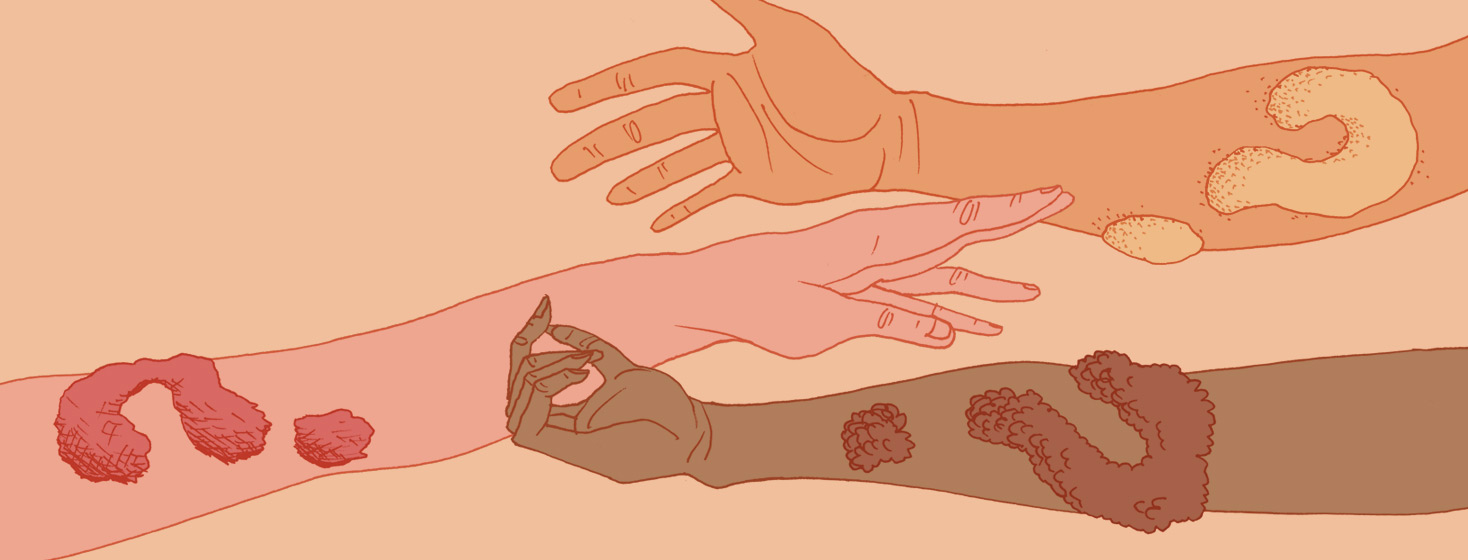What to Do If You Think You Have Psoriasis
I hang around psoriasis groups and chat forums pretty regularly, and one thing I see the most of is people sharing photos of their skin in hopes of finding out if what they have is psoriasis or not. I understand that the internet is most everyone in the 21st century’s go-to for initial information, but every time I see one of these posts I cringe. Let me tell you why.
Psoriasis is a heterogeneous disease
I know you don’t expect the funny guy to use too many million-dollar words, but heterogeneous basically means individual, different or varied. Although there can sometimes be similarities in the way psoriasis shows up, for the most part, it is very different from person to person. Not only does it look different across the board, but the way that each person finds treatment is different too. Time and time again, I talk to someone that found x, y or z worked for them, but I try it and nothing happens.
Psoriasis is a serious disease
Those that haven’t been diagnosed with the disease may not realize that there is more to psoriasis than just an annoying rash on the skin. This disease impacts your internal systems; the inflammation is inside your body just as much as outside. Not only that, but there are other serious diseases associated with it. They range from diabetes, heart disease, and depression to uveitis and irritable bowels.
Psoriatic arthritis is a risk of this disease
One of the biggest risk factors of having psoriasis is developing psoriatic arthritis. This debilitating inflammatory joint disease rears its head in roughly a third of those with psoriasis. Diagnosis is difficult due to the absence of proper diagnostic testing, so often it goes undiagnosed even to those that have a concrete psoriasis diagnosis. The scariest thing is that it is often fast-moving and can cause permanent damage if not properly treated.
Psoriasis is a cureless disease
There is no cure for psoriasis. Warriors of the internet will often claim that there is, and in the process steal a lot of money and hope from those looking to get rid of their itchy, painful spots. If you are trying to self-diagnose, you make yourself more vulnerable to those that don’t have scientifically-rooted information. Furthermore, the treatments that have been proven through clinical trials and loads of data work differently for each person, and they require a prescription from a doctor. The only treatments that can be offered by fellow patients are alternative. These alternative approaches can be helpful, but if you actually have psoriasis and they don’t work for you, you are delaying appropriate treatment which can hurt you in the long run.
Get professional help
Bottom line: get professional help. If you don’t have insurance or access to a doctor, at the very least contact the National Psoriasis Foundation to see if there are resources to connect you with someone that specializes in the disease. Fellow patients are not equipped to diagnose such a complex disease and a misdiagnosis could mean improper treatment for whatever disease you actually have. I know it is scary to see a dermatologist or a doctor. I’ve been there. But getting a true answer and concrete facts will start you off on a much stronger journey.

Join the conversation